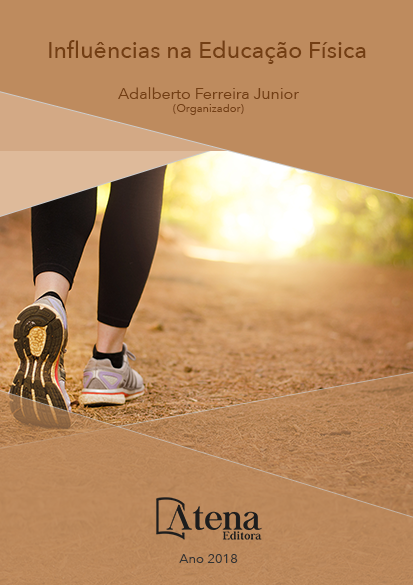
IMPLEMENTATION OF THE TEACHING PERSONAL AND SOCIAL RESPONSIBILITY MODEL THROUGH PHYSICAL ACTIVITY: A PILOT STUDY
Um modelo que promove o
desenvolvimento positivo de jovens através
da atividade física é o Modelo de Ensino de
Responsabilidade Social e Pessoal (MERSP)
criado por Hellison (1985 apud HELLISON,
2011) que auxilia no desenvolvimento da
responsabilidade social e pessoal. O MERSP
é dividido em cinco níveis de responsabilidade,
(1) respeitar o direito e sentimento dos outros,
(2) esforço e cooperação, (3) auto direção, (4)
liderança e (5) transferência do aprendizado para
fora do programa e conta com estratégias e um
formato diário de aula. Com isso, o objetivo do
estudo foi desenvolver o respeito pelos outros,
a liderança e o autocontrole implementando
o MERSP num programa chamado Projeto Esporte e Lazer na Comunidade Fátima
(PELCF) realizado na cidade Caxias do Sul - RS/Brasil. O presente estudo se se
caracterizou como uma pesquisa qualitativa do tipo estudo piloto e foi aplicado em 3
turmas do PELCF sendo o grupo 1 os participantes de 8 a 9 anos, o grupo 2 os de 10 a
13 anos e grupo 3 os 14 a 17 anos. Observou-se mudanças positivas na implementação
do MERSP no PECLF nas áreas de respeito pelos outros, liderança e autocontrole,
utilizando-se das estratégias e formatos de aula previsto pelo modelo. O presente
estudo torna-se a primeira implementação do MERSP no Brasil no cenário de um
programa de atividade física após a escola. Destaca-se, no entanto, a necessidade de
realização de mais estudos implementando o MERSP, utilizando alguns instrumentos
de coleta de dados específicos e ferramentas de avaliação.
IMPLEMENTATION OF THE TEACHING PERSONAL AND SOCIAL RESPONSIBILITY MODEL THROUGH PHYSICAL ACTIVITY: A PILOT STUDY
-
DOI: 10.22533/at.ed.9251802129
-
Palavras-chave: Responsabilidade Social e Pessoal; Respeito; Liderança.
-
Keywords: Personal and Social Responsibility; Respect; Leadership.
-
Abstract:
A model that promotes the
positive youth development through physical
activity is the Teaching Personal and Social
Responsibility (TPSR) model development
by Hellison (1985 cited by HELLISON, 2011)
that assist in the development of personal and
social responsibility. The TPSR consists of five
responsibility levels, (1) respecting the rights
and feelings of others, (2) effort and cooperation,
(3) self-directed, (4) leadership and (5) transfer
outside the gym and depend on strategies and
a daily program format. Therefore, the purpose
of this study was to develop respect for the
others, leadership and self-control by applying
the TPSR in a sport program called Sport
and Leisure Project in the Fatima Community
(SLPFC) accomplished in the city of Caxias
do Sul, state of Rio Grande do Sul, Brazil.
The present study was characterized by a
qualitative research of the pilot study type and
was implemented in 3 classes of SLPFC being
group 1 being participants from 8 to 9 years,
group 2 from 10 to 13 years and group 3 from 14
to 17 years. Positive changes were observed in
the implementation of the TPSR in the SLPFC in
the field of respect of the others, leadership and
self-control, using the strategies and classroom
formats provided by the model. The present
study becomes the first implementation of TPSR
in an after-school program background based in
the physical activity in Brazil. However, there is
a need to conduct more studies implementing
the TPSR in Brazil, using some specific data
collection tools and evaluation tools.
-
Número de páginas: 15
- Fábio Duarte Almeida


